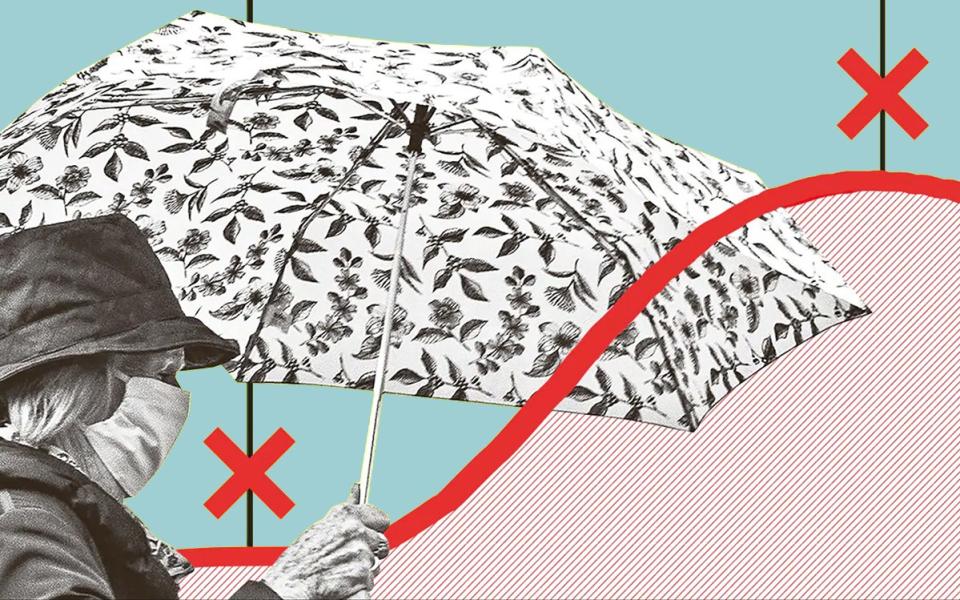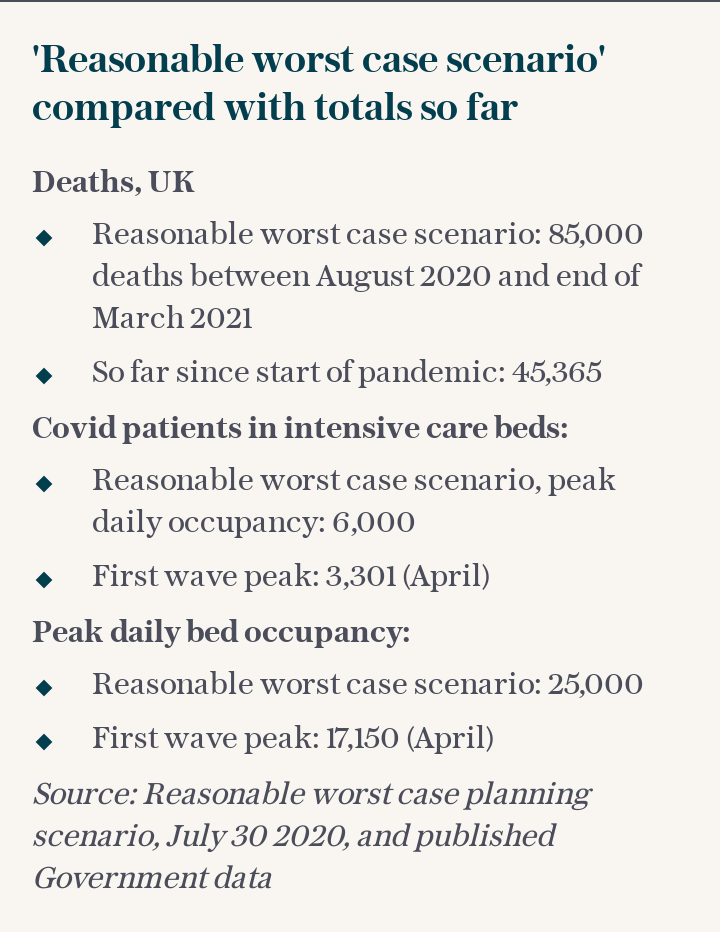Britain's death toll 'could hit 85,000 in second Covid wave'


Britain's death toll from the second coronavirus wave could reach 85,000 – almost double the total so far – according to leaked documents from the Scientific Advisory Group for Emergencies (Sage).
The "reasonable worst case scenario" suggests the number of fatalities could remain high for at least three months, continuing long after Christmas and even into March.
The modelling, leaked to The Spectator, comes as the UK's total deaths rose by a further 310, bringing the toll to 45,365. It comes amid suggestions that the whole of England could be placed under Tier 3 Covid restrictions by Christmas if infections continue to rise.
The modelling, drawn up in late July, outlines a situation in which deaths remain above 500 a day for at least three months, peaking at 800 a day. During the first wave, deaths remained at over 500 a day for five weeks, peaking at 1,100 a day.
While the scenario drawn up by Sage's Scientific Pandemic Influenza Group on Modelling (SPI-M) models death numbers until the end of March, the documents warn that the peak weeks could even last beyond then.
On current trends, the absolute peak is likely to arrive sooner – but numbers are expected to remain high for months.
The situation is causing grave concern in Downing Street because Britain is doing worse than the "reasonable worst case scenario" had anticipated in efforts to contain the virus. Health officials now expect the death toll to reach 500 a day within weeks.
The scenario suggests that at the peak of the second wave, around 25,000 hospital beds will be filled by Covid patients – significantly more than the 17,000 that were filled in April.
While the documents suggest this point will be reached in February, one of Sage's advisers said on Wednesday that it could be reached by the end of November.
The modelling drawn up on 30 July assumed an 'R' reproduction rate of one in September, with infection levels remaining "steady" until the end of October. But Britain's numbers of cases, infections and deaths are running far ahead of that scenario.
Estimates put the 'R' at between 1.2 and 1.7 by mid-September, and it is now at 1.6. The latest daily figures show 24,701 lab-confirmed virus cases – up from 1,295 in September.
Government scientists are concerned that the levels are likely to remain high for months, following patterns being seen across Europe, which could mean numbers staying high long after Christmas.
While thousands of deaths this autumn and winter may be directly caused by Covid, a further 27,000 excess deaths from other conditions, such as those caused by "lack of NHS capacity" are feared, the documents suggest.
The Government is under intense pressure from many Tory MPs to abandon its three-tier system of lockdowns and prioritise the economy instead, but Boris Johnson has refused to back down from his policy and made it clear that even tougher restrictions may be needed.

The modelling also assumes that restrictions to limit transmission between households will remain in place until the end of March, giving some insight into the reluctance of Government to discuss an "exit strategy" from the measures.
The documents do not specify which measures, but they were drawn up before the Government introduced the "rule of six", a curfew for pubs and restaurants and the tier system.
Government scientists have since said the "rule of six" was "frankly useless" and in fact increased the risks of transmission by allowing more households to mix.
The scenario makes other assumptions which now appear to be optimistic.
The 14-page document suggests immunity acquired from Covid would be maintained over the course of the nine-month period examined. But earlier this week, major British research revealed that immunity appears to wane "quite rapidly" and may only last a matter of months, with fewer than one in 20 people now thought to have antibodies.
A Government spokesperson said: "As a responsible government we continue to prepare for a wide range of scenarios, including the reasonable worst case scenario.
“We have made significant strides in our approach - we have provided the NHS with an extra £3 billion in funding to help it continue to provide high quality care as we head into winter, treatments like dexamethasone have been proven to save lives and there is promising progress in finding a vaccine through government-backed scientific research.”

 Yahoo News
Yahoo News 